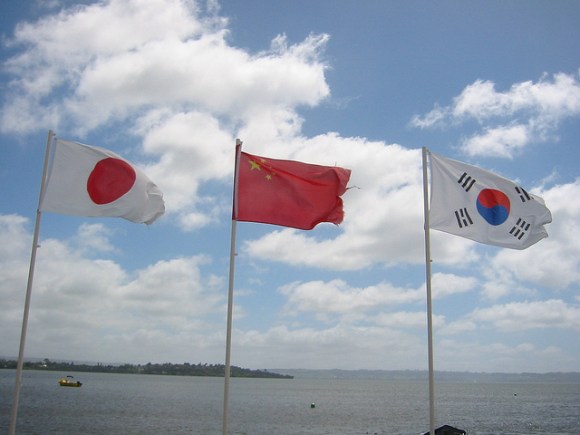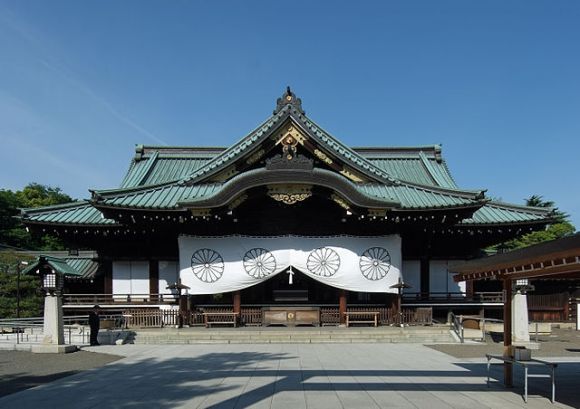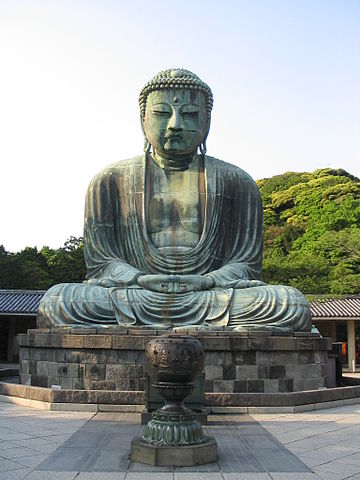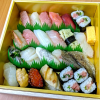We asked Japanese people to tell us the things foreigners say or think about Japan that really gets their goat—and they were happy to oblige! How many of these faux pas are you guilty of?
We expats living in Japan tend to gripe about the stereotypes about our native countries. If you’re from England, for example, someone here might bring up the poor reputation of English food; if you’re Canadian, you probably don’t like being mistaken for American; and I once met an Iranian living in Japan who lamented that people confuse Iranians with Arabs. So today we’re going to turn the tables and ask Japanese people about the things foreigners say or think about the Land of the Rising Sun that really irks them.
1. “Ni-hao”
A recent Japanese tourist to Italy said that she was surprised that vendors in the streets selling umbrellas, selfie sticks, etc. (who also appeared to be foreigners) greeted her with “Nihao” instead of “Konnichiwa.” Furthermore, at a restaurant in Rome, her family was seated in a section with other Asians rather than among tourists of all nationalities. “It reminded me of the now famous incident with Gackt, at a French hotel,” she said.
2. “You must be Korean.”
If you can’t tell the difference between Japanese, Korean and Chinese people, don’t feel too bad because some Japanese people say they can’t either. But most Japanese people say they most definitely can detect the difference, so you’ll likely be insulting them if you call them anything other than Japanese. If you’ve never been to Asia, it may be even harder to recognize where someone is from, but it’s best to be sure before you make any desultory comments. Keep in mind that these three countries, despite any similarities they may have, are vastly different when it comes to politics, language, culture, and just about everything that isn’t superficial! And as politics continues to divide Asian countries along sociopolitical and religious lines, this has become an even more sensitive issue. Find out, or ask, before passing judgement.
3. Saying, “You’re Japanese, right?” to an Okinawan.
An American living in Okinawa laments that once he was chastised for thinking a Japanese woman was Okinawan. “I couldn’t tell the difference between Japanese and Okinawans then and I still can’t. I didn’t mean to be rude,” he said. “I learned later that it was a cultural thing.”
Just like Hawaii is part of the U.S. but has a distinct Hawaiian culture and people, Okinawa, although part of Japan, has a distinct original population. Naturally, indigenous people are proud of their roots and are partial to the things that make their culture unique. When visiting Okinawa, if you’re not sure if someone is Okinawan or Japanese, rather than risk an uncomfortable situation, better to find out first.
4. “What do you think about Yasukuni Shrine?”
Yasukuni Shrine, a place so controversial that even Justin Beiber’s visit was considered scathing, is a place that breeds contention between Japan and some other Asian countries, namely China and South Korea. One of the most popular and important shrines in Japan, Yasukuni honors all 2,466,532 people who have ever fought for Japan (including foreigners and children) and thus serves as a memorial to Japan’s fallen military personnel. The problem with Yasukuni is the dilemma it presents other countries, since 1,060 of the enshrined are war criminals, and 14 are considered Class A war criminals. Fortunately, the controversy has been out of the news for some time now since Prime Minister Shinzo Abe no longer visits the contested shrine, favoring Ise Shrine instead. On one hand, he has ceased stoking of the ire of other Asian countries who oppose a prime minister’s visit, while on the other is aligning himself with the Imperial family, who have a close connection to Ise Shrine.
Your average Japanese person doesn’t want to get involved with the sociopolitical cross-fire, and feels uncomfortable voicing their views, whatever they may be, in front of others, so it’s best to avoid the topic of Yasukuni altogether.
5. Why do you still have an emperor?
Foreigners are generally curious about the oldest continuing hereditary monarchy in the world and may even ask why there is still an emperor. Although Emperor Akihito and the royal family are treated more like celebrities these days, foreigners raising the subject of Japan’s emperor often has some connection to WWII and Japan’s history before the war. In modern, peace-loving Japan—a result of the outcome of WWII and the imposed constitution (Article 9)—most Japanese have moved on and prefer not to talk about their country’s Imperial past. If you must talk about the royal family, talk about kawaii Princess Aiko or beautiful Princess Kako (something everyone agrees on!).
6. How often do you meditate?
▼ I meditate pretty much all day, every day, for about 750 years now.
While most Japanese, when pressed, will tell you that they are Buddhist (and Shinto) that doesn’t mean they meditate, know the Lotus Sutra by heart or are familiar with the finer points of either religion. Although most Japanese follow religious protocol at weddings, funerals and assorted festivals, when asked specific questions like, “So, what’s the priest doing now?” while watching a festival, or “How often do you meditate?” they’ll probably feel like they’re being put on the spot, which is never comfortable.
Which leads us to faux pas number seven:
7. Why? When? How?!
▼ Not another question! (yawn)
“How can you eat fish three times a day?” (Answer: sushi, sashimi, octopus salad, grilled eel, chirashi zushi, tempura udon, miso soup, shrimp curry, dried squid, nabe, etc.) “Where are all the bicycles?” (Answer: Um, China maybe?). What do you think of the issues surrounding the Senkaku Islands? (Answer: Uhhh…). Foreigners ask a lot of questions! While it’s fine to be curious, and it’s flattering to know there is so much interest in their country, many Japanese feel exhausted at the end of a day showing foreigners around, especially if the host’s English isn’t that fluent (and probably even if it is!). It can seem like an unending pop-quiz on Japanese history and religion for the locals. Choose just a couple of your most pressing concerns to ask each person, rather than bombarding someone with everything you’ve been dying to know.
8. Honda, Panasonic, Toyota!
We’ll leave you with a funny story from one of my ex-colleagues. “When I traveled to the U.S.A. and people found out I was from Japan, they’d often call out a few company names in a row. I do not recall all of them, but one name I vividly remember was always ‘Toyota!’ I usually replied saying ‘I have nothing to do with the company.'” While this is just seem like a playful reaction at first, hearing it over and over just might get your goat. Meh-eh-eh!
Foreigners—we’re a curious lot, aren’t we?
Go ahead and share your faux pas with us in the comments section below!
Featured image via eharmony





 New Head Priest of Controversial Yasukuni Shrine Appointed
New Head Priest of Controversial Yasukuni Shrine Appointed Culture clash: 10 insider tips for visiting Japan
Culture clash: 10 insider tips for visiting Japan Foreign resident of Japan sentenced to eight months in prison for vandalizing Tokyo shrine
Foreign resident of Japan sentenced to eight months in prison for vandalizing Tokyo shrine Police respond to explosion, suspected bombing at Yasukuni Shrine in central Tokyo
Police respond to explosion, suspected bombing at Yasukuni Shrine in central Tokyo Company known for Pokémon cards and toys under fire for tweet about visiting Yasukuni Shrine
Company known for Pokémon cards and toys under fire for tweet about visiting Yasukuni Shrine Highest Starbucks in Japan set to open this spring in the Tokyo sky
Highest Starbucks in Japan set to open this spring in the Tokyo sky Yakuzen ramen restaurant in Tokyo is very different to a yakuza ramen restaurant
Yakuzen ramen restaurant in Tokyo is very different to a yakuza ramen restaurant Survey finds that one in five high schoolers don’t know who music legend Masaharu Fukuyama is
Survey finds that one in five high schoolers don’t know who music legend Masaharu Fukuyama is Burning through cash just to throw things away tops list of headaches when moving house in Japan
Burning through cash just to throw things away tops list of headaches when moving house in Japan McDonald’s ad in Japan causes controversy overseas
McDonald’s ad in Japan causes controversy overseas Foreign tourists in Japan will get free Shinkansen tickets to promote regional tourism
Foreign tourists in Japan will get free Shinkansen tickets to promote regional tourism The Sailor Moon theme song is based on another song about drinking a lot of tequila【Video】
The Sailor Moon theme song is based on another song about drinking a lot of tequila【Video】 This is what a 10,800-yen (US$100) Tokyo sushi boxed lunch looks like【Taste test】
This is what a 10,800-yen (US$100) Tokyo sushi boxed lunch looks like【Taste test】 Japanese manhole covers become a hit with foreign tourists in off-the-beaten path Tokyo area
Japanese manhole covers become a hit with foreign tourists in off-the-beaten path Tokyo area We visit the 24-hour male-only sauna just outside of Hakata Station and ponder a strange sight
We visit the 24-hour male-only sauna just outside of Hakata Station and ponder a strange sight The 10 most annoying things foreign tourists do on Japanese trains, according to locals
The 10 most annoying things foreign tourists do on Japanese trains, according to locals Starbucks Japan releases new sakura goods and drinkware for cherry blossom season 2026
Starbucks Japan releases new sakura goods and drinkware for cherry blossom season 2026 Naruto and Converse team up for new line of shinobi sneakers[Photos]
Naruto and Converse team up for new line of shinobi sneakers[Photos] Is Sapporio’s Snow Festival awesome enough to be worth visiting even if you hate the snow? [Pics]
Is Sapporio’s Snow Festival awesome enough to be worth visiting even if you hate the snow? [Pics] Japan has trams that say “sorry” while they ride around town…but why?
Japan has trams that say “sorry” while they ride around town…but why? Tokyo Skytree turns pink for the cherry blossom season
Tokyo Skytree turns pink for the cherry blossom season Sakura Totoro is here to get spring started early with adorable pouches and plushies
Sakura Totoro is here to get spring started early with adorable pouches and plushies Poop is in full bloom at the Unko Museums for cherry blossom season
Poop is in full bloom at the Unko Museums for cherry blossom season Shibuya Station’s Hachiko Gate and Yamanote Line stairway locations change next month
Shibuya Station’s Hachiko Gate and Yamanote Line stairway locations change next month Japan’s new “Cunte” contact lenses aren’t pronounced like you’re probably thinking they are
Japan’s new “Cunte” contact lenses aren’t pronounced like you’re probably thinking they are Japan’s newest Shinkansen has no seats…or passengers [Video]
Japan’s newest Shinkansen has no seats…or passengers [Video] Foreigners accounting for over 80 percent of off-course skiers needing rescue in Japan’s Hokkaido
Foreigners accounting for over 80 percent of off-course skiers needing rescue in Japan’s Hokkaido Super-salty pizza sends six kids to the hospital in Japan, linguistics blamed
Super-salty pizza sends six kids to the hospital in Japan, linguistics blamed Starbucks Japan unveils new sakura Frappuccino for cherry blossom season 2026
Starbucks Japan unveils new sakura Frappuccino for cherry blossom season 2026 Take a trip to Japan’s Dododo Land, the most irritating place on Earth
Take a trip to Japan’s Dododo Land, the most irritating place on Earth Is China’s don’t-go-to-Japan warning affecting the lines at a popular Tokyo gyukatsu restaurant?
Is China’s don’t-go-to-Japan warning affecting the lines at a popular Tokyo gyukatsu restaurant? Survey asks foreign tourists what bothered them in Japan, more than half gave same answer
Survey asks foreign tourists what bothered them in Japan, more than half gave same answer Japan’s human washing machines will go on sale to general public, demos to be held in Tokyo
Japan’s human washing machines will go on sale to general public, demos to be held in Tokyo Starbucks Japan releases new drinkware and goods for Valentine’s Day
Starbucks Japan releases new drinkware and goods for Valentine’s Day We deeply regret going into this tunnel on our walk in the mountains of Japan
We deeply regret going into this tunnel on our walk in the mountains of Japan Studio Ghibli releases Kodama forest spirits from Princess Mononoke to light up your home
Studio Ghibli releases Kodama forest spirits from Princess Mononoke to light up your home Major Japanese hotel chain says reservations via overseas booking sites may not be valid
Major Japanese hotel chain says reservations via overseas booking sites may not be valid Put sesame oil in your coffee? Japanese maker says it’s the best way to start your day【Taste test】
Put sesame oil in your coffee? Japanese maker says it’s the best way to start your day【Taste test】 No more using real katana for tourism activities, Japan’s National Police Agency says
No more using real katana for tourism activities, Japan’s National Police Agency says Yasukuni Shrine for Dummies, feat. Ian Ziering, Hitler’s corpse, and Anpanman
Yasukuni Shrine for Dummies, feat. Ian Ziering, Hitler’s corpse, and Anpanman Justin Bieber’s Yasukuni Shrine visit draws scorn from Asian fans
Justin Bieber’s Yasukuni Shrine visit draws scorn from Asian fans Confessions of a gaijin: 12 things we do that we’d never admit to Japanese people
Confessions of a gaijin: 12 things we do that we’d never admit to Japanese people How do you say “Happy New Era” in Japanese?
How do you say “Happy New Era” in Japanese? Does the experience of living in Japan make you a better person? The good, bad and ugly
Does the experience of living in Japan make you a better person? The good, bad and ugly What are the top 10 most popular shrines among international tourists? Study reveals…
What are the top 10 most popular shrines among international tourists? Study reveals… At this Kyoto shrine, be careful what you wish for—and how—, because you just might get it
At this Kyoto shrine, be careful what you wish for—and how—, because you just might get it 10 things Japan gets horribly wrong
10 things Japan gets horribly wrong Find a red envelope on the ground? Here’s why you should never pick it up
Find a red envelope on the ground? Here’s why you should never pick it up Sakura season 2018 officially declared in Tokyo as first cherry blossoms begin to bloom
Sakura season 2018 officially declared in Tokyo as first cherry blossoms begin to bloom How should you respond when a Japanese person gives you a compliment?
How should you respond when a Japanese person gives you a compliment? Five things you should know before coming to Japan【Video】
Five things you should know before coming to Japan【Video】 Tatami etiquette: Why you should never step on the threshold of a washitsu Japanese room
Tatami etiquette: Why you should never step on the threshold of a washitsu Japanese room Five awkward moments that prove you’ve finally nailed that whole “living in Japan” thing
Five awkward moments that prove you’ve finally nailed that whole “living in Japan” thing Travel around Japan with stunning videos from the 4K ultra HD video library
Travel around Japan with stunning videos from the 4K ultra HD video library Japan Misunderstood: 3 stereotypes that live on
Japan Misunderstood: 3 stereotypes that live on